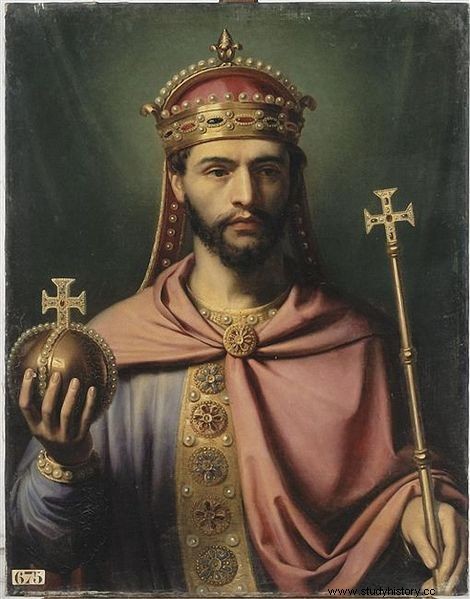Son of Charlemagne, Louis the Pious became king of Aquitaine at the age of three and, in 813, his father crowned him emperor. Close to the papacy, defender of Christianity, Louis the Pious, who inherited an immense empire, undertook a Reform of the Church (816-819) and continued the artistic Renaissance. He assures his succession by the Ordinatio Imperii (817) (legal decision taken by the emperor), which favors the eldest, Lothair, appointed co-emperor when his two brothers Pépin and Louis are subject to his authority. Bernard, grandson of Charlemagne, revolts because he wants a larger share of the inheritance. Having his eyes burned by the emperor, he dies of his wounds. The Church demanded public repentance from the emperor, who executed himself (818), which undermined his authority, already weakened by the various revolts of the surrounding peoples (Visigoths, Spain). In addition, the birth of Charles the Bald, from a second marriage, upsets the succession. By choosing to favor the latter, Louis the Pious incurs the wrath of his sons who dismiss him twice, including in the field of Lies (833) for the benefit of the eldest. But, faced with the power of Lothaire, Louis and Pépin returned the throne to their father (834). The Débonnaire died in 840 -before facing Louis the Germanic who, aggrieved by the division of Worms (839) carried out by Louis the Pious, wished to attack his father-, leaving a fragmented Empire.
778 - 840

Status
Head of State
King of the Franks
Western Emperor
